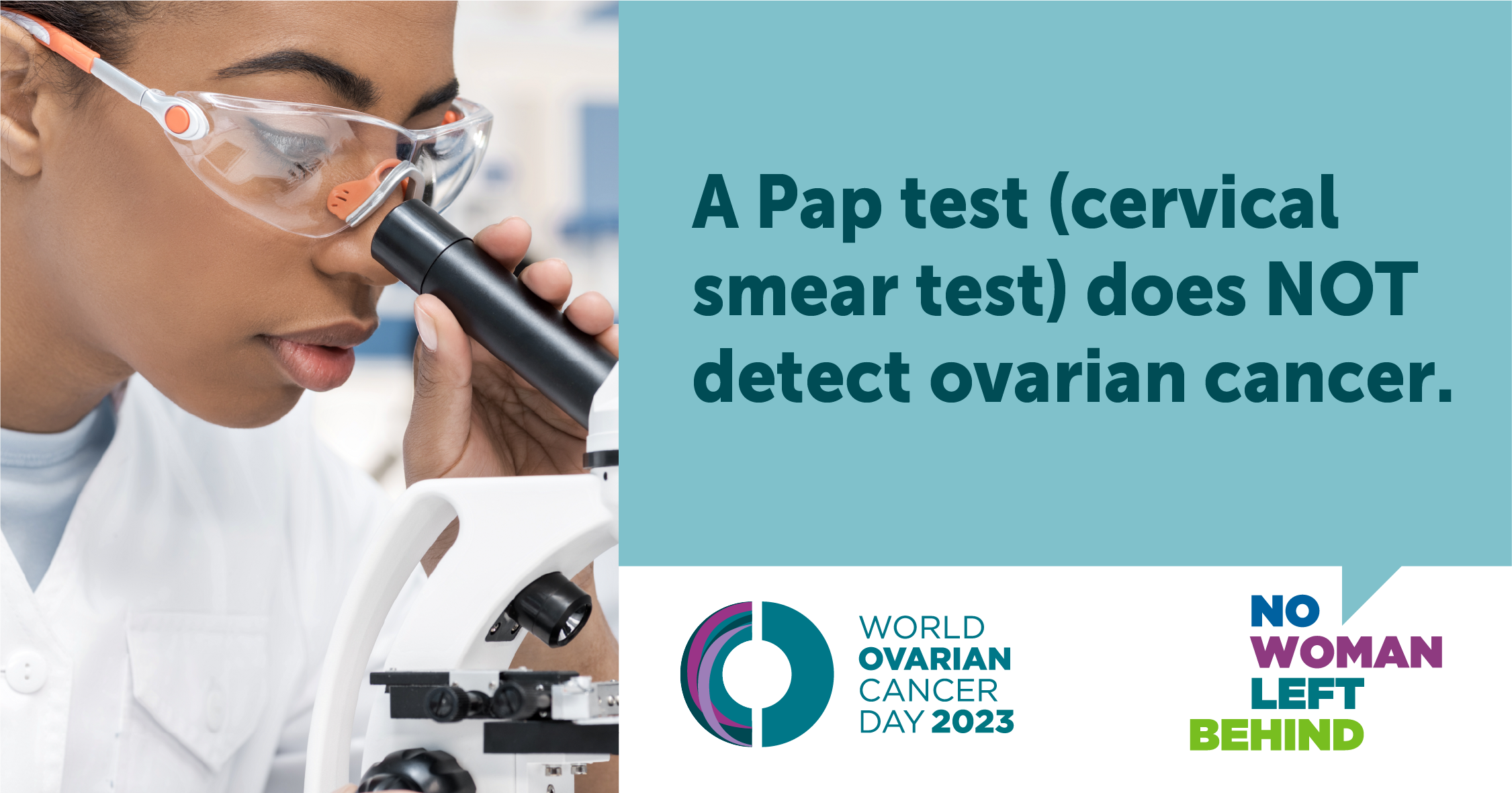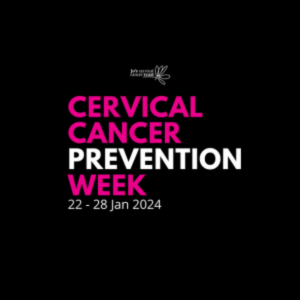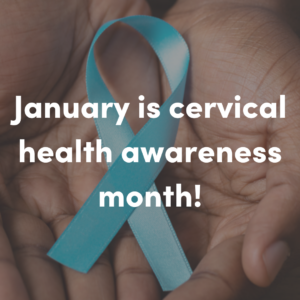Pap Tests and I
Even though I am young,
or I am a virgin,
or I have had the HPV vaccine,
I may still need regular Pap tests.
Even though I have only had sex once,
or I am not having sex now,
or I have not had sex for years,
I may still need regular Pap tests.
Even though I have only had one sex partner,
or only same sex partners,
I may still need regular Pap tests.
Even though I have had a partial hysterectomy,
or a total hysterectomy,
or a cancer-related hysterectomy,
I may still need regular Pap tests.
Even though I have stopped having children
or been through menopause,
I may still need regular Pap tests until
I am 65 years of age, younger or older.
It may therefore be in my best interest to
choose to check what’s-what for me.
Meno Martha
What may the Pap Tests and I Umbrella include?
Depending on the Source (DotS) this umbrella may include:
- Cervical Screening Test
- Pap Smear
- Pap Smear Test
- Pap Test
- Smear Test
Start. Frequency. Stop.
Can when to start, the frequency and when to stop Pap tests, vary?
Yes. Depending on You (DoY), DotS and/or Depending on Your Country’s (DoYC’s) cervical cancer screening program, when to start, the frequency and when to stop Pap tests, can vary. It may therefore be in your best interest to choose to check what’s-what for you.
Young
If I am young, do I still need regular Pap tests?
DoY, DotS and/or DoYC’s cervical cancer screening program, when you start having regular Pap tests can vary. It may therefore be in your best interest to choose to check what’s-what for you in your country.
For the United States, the National Cancer Institute (NCI) note in Cervical Cancer Screening: When To Get Screened for Cervical Cancer – Age 21-29 Years:
“If you are in this age group, USPSTF recommends getting your first Pap test at age 21, followed by Pap testing every 3 years. Even if you are sexually active, you do not need a Pap test before age 21”.1
What is USPSTF?
USPSTF can be an abbreviation for the United States Preventative Services Task Force.
Virgin
Do I still need regular Pap Tests if I’m a virgin?
In Pap Smear: Do I Need One If I’m A Virgin? the (United Sates) Mayo Clinic elaborate on:
Different Differences
Do I still need regular Pap Tests if I have different differences?
In Who Should Get A Cervical Screening Test? Should You Have A Cervical Screening Test? the (Australian) National Cervical Screening Program explain:
 “It makes no difference if you:
“It makes no difference if you:
- Are gay, lesbian, bisexual, transgender or straight
- Have had the HPV vaccination or not
- Are no longer sexually active
- Have been through menopause
- Have been with only one sexual partner
- Have experienced traditional cutting or circumcision
- Have had a baby
- Are pregnant (ensure to let your health care professional know)”.3
Gay, Lesbian, Bisexual, Transgender+
If I am gay, lesbian, bisexual or transgender, do I still need regular Pap tests?
In About Cervical Screening: Cervical Screening FAQs – Should LGBT+ People With A Cervix Go for Cervical Screening the (United Kingdom) Jo’s Cervical Cancer Trust elaborate on:
Most cervical cell changes and cervical cancers are caused by persistent infection with HPV. As HPV can be passed on through any skin-to-skin contact in the genital area, anyone having any kind of sex is at risk of getting it”.4
HPV Vaccine
If I have had the HPV vaccine, do I still need regular Pap tests?
In Cervical Cancer: Prevention – Do You Still Need To Have Cervical Screening Tests If You Have Had the Vaccine? the (Australian) Jean Hailes for Women’s Health note:
Stopped Having Children
If I have stopped having children, do I still need regular Pap tests?
In The American Cancer Society Guidelines for the Prevention and Early Detection of Cervical Cancer according to the American Cancer Society (ACS):
Partial Hysterectomy
If I have had a partial hysterectomy, do I still need regular Pap tests?
In Who Should Get A Cervical Screening Test? Should You Have A Cervical Screening Test? the National Cervical Screening Program explain:
“If you have had a full or partial hysterectomy, please check with your doctor about screening”.7
Total Hysterectomy
If I have had a total hysterectomy, do I still need regular Pap tests?
In Hysterectomy: I’ve Had A Hysterectomy. Do I Still Need To Have Pap Tests? the Office on Women’s Health, United States Department of Health and Human Services, Womenshealth.gov explain:
- Did not have your cervix removed
- Had a hysterectomy because of cancer or precancer
Ask your doctor what is best for you and how often you should have Pap tests”.8
Diethylstilbestrol
If my mother took the drug diethylstilbestrol (DES) while she was pregnant with me, do I still need regular Pap tests?
In Cervical Cancer Screening: When To Get Screened for Cervical Cancer – Exceptions To the Cervical Cancer Screening Guidelines the NCI note:
- Were exposed before birth to a medicine called diethylstilbestrol (DES), which was prescribed to some pregnant women through the mid 1970s…”.9
Other Conditions
What if I need more regular Pap tests?
In The American Cancer Society Guidelines for the Prevention and Early Detection of Cervical Cancer: Considerations for Other Patient Populations according to the ACS:
“Those who are at high risk of cervical cancer because of a suppressed immune system (for example from HIV infection, organ transplant, or long-term steroid use) or because they were exposed to DES in utero may need to be screened more often. They should follow the recommendations of their health care team”.10
HPV Test
What is a HPV test?
In The HPV Test the ACS elaborate on:
“The most important risk factor for developing cervical cancer is infection with human papillomavirus (HPV). Doctors can test for the high-risk HPV types that are most likely to cause cervical cancer by looking for pieces of their DNA in cervical cells. The test can be done by itself (primary HPV test) or at the same time as a Pap test (called a co-test). You won’t notice a difference in your exam if you have both tests done”.11
Symptoms
What if I think I have symptoms?
In Cervical Screening: When Do I Start Screening? the (Australian) Cancer Council note:
“Cancer Council recommends that women of any age who have symptoms (including pain or abnormal vaginal bleeding or discharge) should see their doctor immediately”.12
Stop
Can when to stop Pap tests, vary?
Yes. Depending on You (DoY), DotS and/or Depending on Your Country’s (DoYC’s) cervical cancer screening program, when to stop Pap tests, can vary. It may therefore be in your best interest to choose to check what’s-what for you.
In Pap Smear: Who Can Consider Stopping Pap Smears? the Mayo Clinic explain:
- After a total hysterectomy…
- Older age. Doctors generally agree that women can consider stopping routine Pap testing at age 65 if their previous tests for cervical cancer have been negative”.13
Health Care Provider
What if I am unsure whether I still need Pap tests?
In Pap Smear: Who Can Consider Stopping Pap Smears? the Mayo Clinic also note:
“Discuss your options with your doctor and together you can decide what’s best for you based on your risk factors. If you’re sexually active with multiple partners, your doctor may recommend continuing Pap testing”.14
Health Topics A-Z
Where may I find Health Topics A-Z related to Pap Tests and I?
In Health Topics A-Z you may find:
Links
Where may I find Links related to Pap Tests and I?
Your Country may have Links similar to:
Links
This Links List to third party websites is neither comprehensive nor exhaustive. Inclusion on this Links List does not imply endorsement or recommendation. Non-inclusion on this Links List does not imply non-endorsement or non-recommendation. Third party websites are not under the control of Meno Martha International Menopause Directory. Third party websites may contain explicit medical images and/or sexual references. Please read Meno Martha International Menopause Directory’s Links Policy before proceeding to a Link. Please contact Webmaster if you experience a problem with a Link.New or Updated
- 4 Ways To Reduce Cervical Cancer
- About Ovarian Cancer

- Breast and Cervical Cancer Screening
- Cervical Cancer
- Cervical Cancer
- Cervical Cancer
- Cervical Cancer
- Cervical Cancer
- Cervical Cancer
- Cervical Cancer Awareness [+ Video]
- Cervical Cancer Causes, Risk Factors, and Prevention
- Cervical Cancer Elimination Day of Action 2023
- Cervical Cancer Overview
- Cervical Cancer Prevention Week [22 – 28 Jan 2024, United Kingdom]

- Cervical Cancer Risks and Causes
- Cervical Cancer Screening
- Cervical Cancer Screening (PDQ)–Patient Version: What Is Screening?
- Cervical Cancer Screening – Multiply Languages
- Cervical Cancer Screening—An Interactive Journey
- Cervical Cancer Screening: Pap and HPV Tests
- Cervical Cancer Survivor: ‘Don’t Let Fear Keep You From Going To the Doctor’
- Cervical Cancer Symptoms
- Cervical Cancer Treatment (PDQ)–Patient Version
- Cervical Cancer [+ Video Courtesy: Mayo Clinic News Network]
- Cervical Cancer and HPV — What’s the Connection?
- Cervical Cancer – Multiply Languages
- Cervical Cancer: Causes, Risk Factors, and Prevention – What Are the Risk Factors for Cervical Cancer?
- Cervical Cancer: Cervical Cancer Prevention and Early Detection
- Cervical Cancer: Cervical Cancer Prevention and Early Detection – The Pap (Papanicolaou) Test
- Cervical Cancer: Early Detection, Diagnosis, and Staging
- Cervical Cancer: Early Detection, Diagnosis, and Staging – Screening Tests for Cervical Cancer: The HPV Test
- Cervical Cancer: Early Detection, Diagnosis, and Staging – Screening Tests for Cervical Cancer: The Pap (Papanicolaou) Test
- Cervical Cancer: Getting Diagnosed
- Cervical Cancer: Prevention of Cervical Cancer: The Cervical Cancer Vaccine – Do You Still Need To Have Pap Smear Tests If You Have Had the Vaccine?
- Cervical Cancer: Screening
- Cervical Cancer: Treating Cervical Cancer
- Cervical Cancer: What Are the Risk Factors for Cervical Cancer? Lack of Regular Cervical Screening Tests
- Cervical Health Awareness Month [January, United States]

- Cervical Screening
- Cervical Screening
- Cervical Screening (Smear Test)
- Cervical Screening Awareness Week [17 – 23 June 2024, United Kingdom]
- Cervical Screening Test [Australia]
- Cervical Screening for Trans Men and/or Non-Binary People
- Cervical Screening: Leaflet for Women Considering Screening [Multiply Languages] [United Kingdom]
- Cervical Screening: Programme Overview [England]
- Cervical Screening: What Is Cervical Screening? [+ Video]
- Colposcopy
- Colposcopy
- Consumer Health: Understanding Cervical Cancer Risk
- Consumer Health: What Is A Pap Smear, and Who Needs One?
- FAQs: Cervical Cancer Screening
- Facts and Tips for Cervical Screening
- Foundationforwomenscancer.org [Foundation for Women’s Cancer, United States]
- Gyn Care 101: What To Know About Seeing A Gynecologist
- Gynecologic Cancers: Cervical Cancer
- Gynecologic Cancers: Cervical Cancer – Basic Information About Cervical Cancer
- Gynecologic Cancers: Cervical Cancer – What Are the Risk Factors for Cervical Cancer?
- Gynecologic Cancers: Cervical Cancer – What Can I Do To Reduce My Risk of Cervical Cancer?
- Gynecologic Cancers: Cervical Cancer – What Should I Know About Screening?
- HPV (Human Papillomavirus)
- HPV Awareness Day [+ Video]
- HPV Infection: How Does It Cause Cervical Cancer?
- HPV Vaccine: Who Needs It, How It Works
- HPV Vaccines
- HPV and Cancer
- HPV and Pap Testing
- HPV and Pap Testing: Do Women Who Have Been Vaccinated Against HPV Still Need To Be Screened for Cervical Cancer?
- HPV and Pap Testing: When Should A Woman Begin Cervical Cancer Screening, and How Often Should She Be Screened
- Have You Heard the Secret To Cervical Cancer Prevention?
- Human Papillomavirus (HPV)
- Human Papillomavirus (HPV)
- Human Papillomavirus (HPV) and Cervical Cancer
- Human Papillomavirus (HPV): HPV Infection
- Human Papillomavirus Vaccine
- Hysterectomy: I’ve Had A Hysterectomy. Do I Still Need To Have Pap Tests?
- International HPV Awareness Day 04 Mar 2023 [+ One Less Worry Video]
- Is It Time for Your Screen Test? [+ Video]
- Jo’s Cervical Cancer Trust [United Kingdom]
- Jo’s Cervical Cancer Trust [United Kingdom]: Our Videos
- Let’s Talk About…Smear Tests When You Have Endometriosis
- Mayo Clinic Minute: The Importance of Cancer Screenings for LGBTQ Community
- Mayo Clinic Minute: Why Black Women Need To Be Screened for Cervical Cancer [+ Video Courtesy: Mayo Clinic News Network]
 National Breast and Cervical Cancer Early Detection Program (NBCCEDP) [United States]
National Breast and Cervical Cancer Early Detection Program (NBCCEDP) [United States]- National Breast and Cervical Cancer Early Detection Program (NBCCEDP) [United States]: Find A Screening Program Near You
- National Cervical Cancer Coalition [United States]
- National Cervical Screening Program [Australia]
- Our Videos: [+ Screening (Other Language Films)]
- Ovarian Cancer Screening: More Than A Pelvic Exam
- Pap Smear
- Pap Smear: Do I Need One If I’m A Virgin?
- Pap and HPV Tests
- Pap and HPV Tests: What Is An HPV Test?
- Prevent Cervical Cancer
- Resources To Share: Videos – “Under the Paper Gown”: A Comedy Web Series
- The American Cancer Society Guidelines for the Prevention and Early Detection of Cervical Cancer
- The Cervix
Sources
Where may I find the Sources quoted?
You may find the Sources quoted:
Sources
- Cervical Cancer Screening: When To Get Screened for Cervical Cancer – Age 21-29 Years. Updated: 27 April 2023. National Cancer Institute https://www.cancer.gov/types/cervical/pap-hpv-testing-fact-sheet#q4 Accessed: 18 December 2023
- Pap Smear: Do I Need One If I’m A Virgin? 07 December 2022. Mayo Clinic https://www.mayoclinic.org/tests-procedures/pap-smear/expert-answers/pap-smear/faq-20057782 Accessed: 18 December 2023
- Who Should Get A Cervical Screening Test? Should You Have A Cervical Screening Test? Date Last Updated: 16 August 2023. National Cervical Screening Program https://www.health.gov.au/initiatives-and-programs/national-cervical-screening-program/getting-a-cervical-screening-test/who-should-get-a-cervical-screening-test Accessed: 18 December 2023
- About Cervical Screening: Cervical Screening FAQs – Should LGBT+ People With A Cervix Go for Cervical Screening. Date Last Updated: 31 May 2022. Jo’s Cervical Cancer Trust https://www.jostrust.org.uk/information/cervical-screening/what-is-cervical-screening Accessed: 18 December 2023
- Cervical Cancer: Prevention – Do You Still Need To Have Cervical Screening Tests If You Have Had the Vaccine? Last Updated: 07 December 2023 | Last Reviewed: 14 April 2023. Jean Hailes for Women’s Health https://www.jeanhailes.org.au/health-a-z/vulva-vagina-ovaries-uterus/cervical-cancer Accessed: 18 December 2023
- The American Cancer Society Guidelines for the Prevention and Early Detection of Cervical Cancer. Last Revised: 22 April 2021. American Cancer Society https://www.cancer.org/cancer/cervical-cancer/detection-diagnosis-staging/cervical-cancer-screening-guidelines.html Accessed: 18 December 2023
- Who Should Get A Cervical Screening Test? Should You Have A Cervical Screening Test? Date Last Updated: 16 August 2023. National Cervical Screening Program https://www.health.gov.au/initiatives-and-programs/national-cervical-screening-program/getting-a-cervical-screening-test/who-should-get-a-cervical-screening-test Accessed: 18 December 2023
- Hysterectomy: I’ve Had A Hysterectomy. Do I Still Need To Have Pap Tests? Page Last Updated: 29 December 2022. Womenshealth.gov https://www.womenshealth.gov/a-z-topics/hysterectomy?from=AtoZ Accessed: 18 December 2023
- Cervical Cancer Screening: Cervical Cancer Screening: When To Get Screened for Cervical Cancer – Exceptions To the Cervical Cancer Screening Guidelines. Updated: 27 April 2023. National Cancer Institute https://www.cancer.gov/types/cervical/pap-hpv-testing-fact-sheet#q4 Accessed: 18 December 2023
- The American Cancer Society Guidelines for the Prevention and Early Detection of Cervical Cancer: Considerations for Other Patient Populations. Last Revised: 22 April 2021. American Cancer Society https://www.cancer.org/cancer/cervical-cancer/detection-diagnosis-staging/cervical-cancer-screening-guidelines.html Accessed: 18 December 2023
- The HPV Test. Last Revised: 30 July 2020. American Cancer Society https://www.cancer.org/cancer/cervical-cancer/detection-diagnosis-staging/screening-tests/hpv-test.html Accessed: 18 December 2023
- Cervical Screening: When Do I Start Screening? Cancer Council https://www.cancer.org.au/cervicalscreening/i-am-over-25/what-do-i-need-to-know-about-the-test/when-do-i-start-screening Accessed: 18 December 2023
- Pap Smear: Who Can Consider Stopping Pap Smears? 18 June 2022. Mayo Clinic https://www.mayoclinic.org/tests-procedures/pap-smear/about/pac-20394841 Accessed: 18 December 2023
- Pap Smear: Who Can Consider Stopping Pap Smears? 18 June 2022. Mayo Clinic https://www.mayoclinic.org/tests-procedures/pap-smear/about/pac-20394841 Accessed: 18 December 2023




